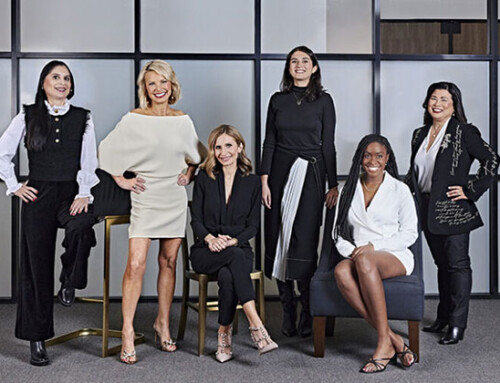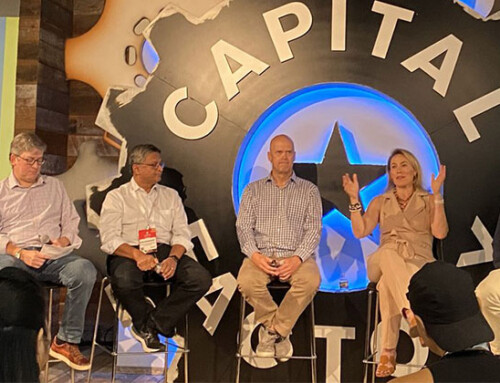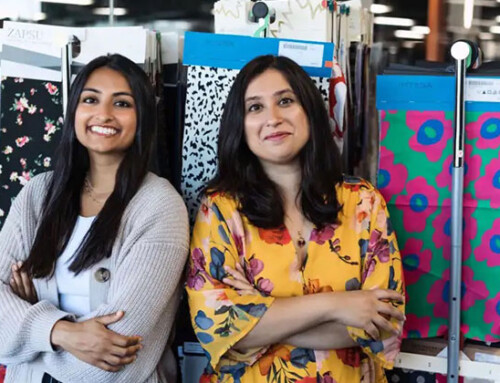The Culture Book — a project in partnership between Culturati & Weeva, is a professional anthology of stories and advice on corporate culture building. We’re featuring a select group of leaders, entrepreneurs, investors & experts who have agreed to open up about what they’ve done right and wrong. The Culture Book was released this month. Order your copy at GetTheCultureBook.com
How do you define culture?
Company culture is a qualitative thing. It consists of spoken and unspoken values, a belief system, ways of interacting, as well as the level of respect and inclusion embodied in the way the company works.
What separates a thriving from a failing company culture?
Whether a company meets our criteria to work with tends to be easy to see. We look at the composition of the team and whether women have strategic decision-making authority. We also look to see if women are prominent on the cap table. We like a diverse advisory team and board, as well.
For us, a thriving culture must include gender diversity. Is a woman in a position of high value? She doesn’t have to be the CEO, but at least one woman should be part of the executive decision-making team and in a position of power. Eighty-three percent of venture-backed companies don’t have a single woman in a position of authority. In all consumer products, women are making eighty-five percent of the purchase decisions. In health care, they’re making eighty percent of the decisions.
Companies with strong female talent, especially in markets where the vast majority of purchasers are women, have a huge advantage: they bring a female perspective to understanding the market and therefore help create better product design and more persuasive marketing. They help the company connect more easily with its customers.
Can you share some specific examples where diversity has led to better business outcomes?
Jean Anne Booth from UnaliWear created her product based on her experience with her mother. Her mother didn’t want to wear an ugly lanyard with a button to summon medical help. Jean Anne invented a product that serves the same SOS function but that her mother would be delighted to wear — it looks like a beautiful smart watch. Jean Anne knows the market first-hand. That really helps her to market to the adult daughters and daughters-in-law who are the most likely buyers.
Or consider Braincheck. They are democratizing cognitive health assessment. It used to be the case that you would have to spend an hour with a neuroscientist to assess your brain health, and now they have an app that anyone can use in ten minutes. This is helpful for moms who are worried their kids might have suffered a concussion, or for assessing dementia or Alzheimer’s.
Again, the target market is women as they are often the caregiver and making the majority of healthcare-related decisions in their extended families.
Braincheck has a female CEO and a male co-founder. The diversity is helpful in targeting customers, but also in strengthening the product. Do you know that women and girls are 1.5 times more likely to suffer a concussion but 100% of the brain research to date has been done on male brains? Having women on the team increases the chances of addressing this imbalance.
Lots of studies show that companies with women in more senior positions perform better financially. They achieve outsized returns, and we think this is partly because these companies have an inherent advantage in understanding the market. Also, diversity of any kind leads to more creativity and innovation.
What do you do if a culture goes off the tracks?
We are interested in companies who value gender diversity from the start. Once a “bro culture” is established, it’s really hard to correct. Talented women and minorities won’t want to work there. While we focus on gender, diversity of all kinds is critical. These companies reap the advantages from the beginning.
What are some specific best practices that underlie successful cultures?
We value authentic company cultures, though that can take many forms. For instance, Jean Anne recently hosted a holiday party at her home. She invited investors and her team and it had a welcoming, family feeling. That suits her. Another example is when True Wealth Ventures won a Profiles in Power award, UnaliWear surprised me with a plaque featuring the award and a party in the office featuring Klondike bars. It was all of ten minutes but had the authentic feel of a family celebration. They do a really nice job of celebrating wins together. It’s not beer and ping pong, it’s ice cream and family.
One of our other companies has a female CEO, and she’s great at transparency. She will tell you anything, even things others would hesitate to share with investors. She started doing this during the diligence process, and it helped build a relationship of trust between us. It really works for us — we know we can trust her to bring us both good and bad news in a timely way. Start-ups always have rough patches, and by being transparent, this company is able to enlist support from us as early as possible. It’s wonderful.






